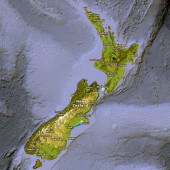Our website uses cookies so we can analyse our site usage and give you the best experience. Click "Accept" if you’re happy with this, or click "More" for information about cookies on our site, how to opt out, and how to disable cookies altogether.
We respect your Do Not Track preference.

If a government agency makes a decision that affects your future, you might well want to find out the reasons for that decision. But the law will not necessarily give you that option.
When the Immigration Act was originally passed in 2009, section 11 specified that the reasons for a decision could not be requested under the Official Information Act. A decision maker was not obliged to provide their reasoning if ‘absolute discretion’ had been used.
This same restriction did not apply to requests made under the Privacy Act. The effect was to create an anomaly as decisions made using absolute discretion could not be released under the OIA but could be made available under the Privacy Act.
Immigration NZ wanted to fix this anomaly and to give effect to Parliament’s original intention when the Act was passed.
Amendment becomes law
On 7 May 2015, the Immigration Amendment Act became law. Its primary purpose was to amend the Immigration Act 2009, to provide greater protections against the exploitation of migrant workers.
Section 9 also amended the definition of ‘absolute discretion’ in section 11 of the Immigration Act to clarify that an individual cannot use principle 6 of the Privacy Act to access the reasons for decisions made using absolute discretion. It has retrospective effect. The amended section 11 gives Immigration NZ a legal basis to withhold the reasons behind decisions arrived at using absolute discretion.
Where a decision is not made using absolute discretion, section 27 of the Immigration Act requires Immigration NZ to provide reasons for reaching a decision, especially if visa or entry permission is refused.
Effect on privacy rights
The amendment was clearly necessary to fix an unintended anomaly. But the amended Act has significant implications for individuals’ right to privacy. Being able to see source information can enable a person to exercise other legal rights. For example, access requests under principle 6 often lead to requests to correct information (principle 7), or to challenges to the accuracy of the information (principle 8).
It is also worth noting that where the Immigration Act provides for the use of the Minister of Immigration, or the chief executive’s absolute discretion to be exercised, it also permits the delegation of discretion right down the chain of command.
Arguments around removing the right of access
Those opposed to the new section 8 expressed concern that removing an individual’s right of access to the reasons for a decision could leave the process, and the delegated authority, open to abuse. Others noted the amendment could:
In response, Immigration NZ said that the decision would still be based on all the information contained in an individual’s immigration file. The individual concerned just won’t be able to see what conclusions the decision maker drew from that information and why.
No power to investigate
The effect of the law change is that if we receive a complaint that Immigration NZ has refused to provide reasons for a decision it made, if absolute discretion was used, we will have no power to investigate.
Right of appeal
There are 24 sections in the Immigration Act which permit the Minister, the chief executive, or an immigration officer to use absolute discretion to reach a decision. In most cases where the discretion is exercised the individual concerned has the ability to review or appeal the decision through the Immigration Protection Tribunal or the Courts.
But there is one exception. Section 48(7) limits that right of appeal in the case of sponsors:
it is a matter for the absolute discretion of the Minister or the immigration officer whether a person is acceptable as a sponsor, and no appeal lies against his or her decision, whether to any court, the Tribunal, the Minister, or otherwise.
In other words, if Immigration NZ decides that someone is not a suitable sponsor, that person has no right to find out the reasons why that decision was reached, nor do they have any right to appeal the decision.
Back